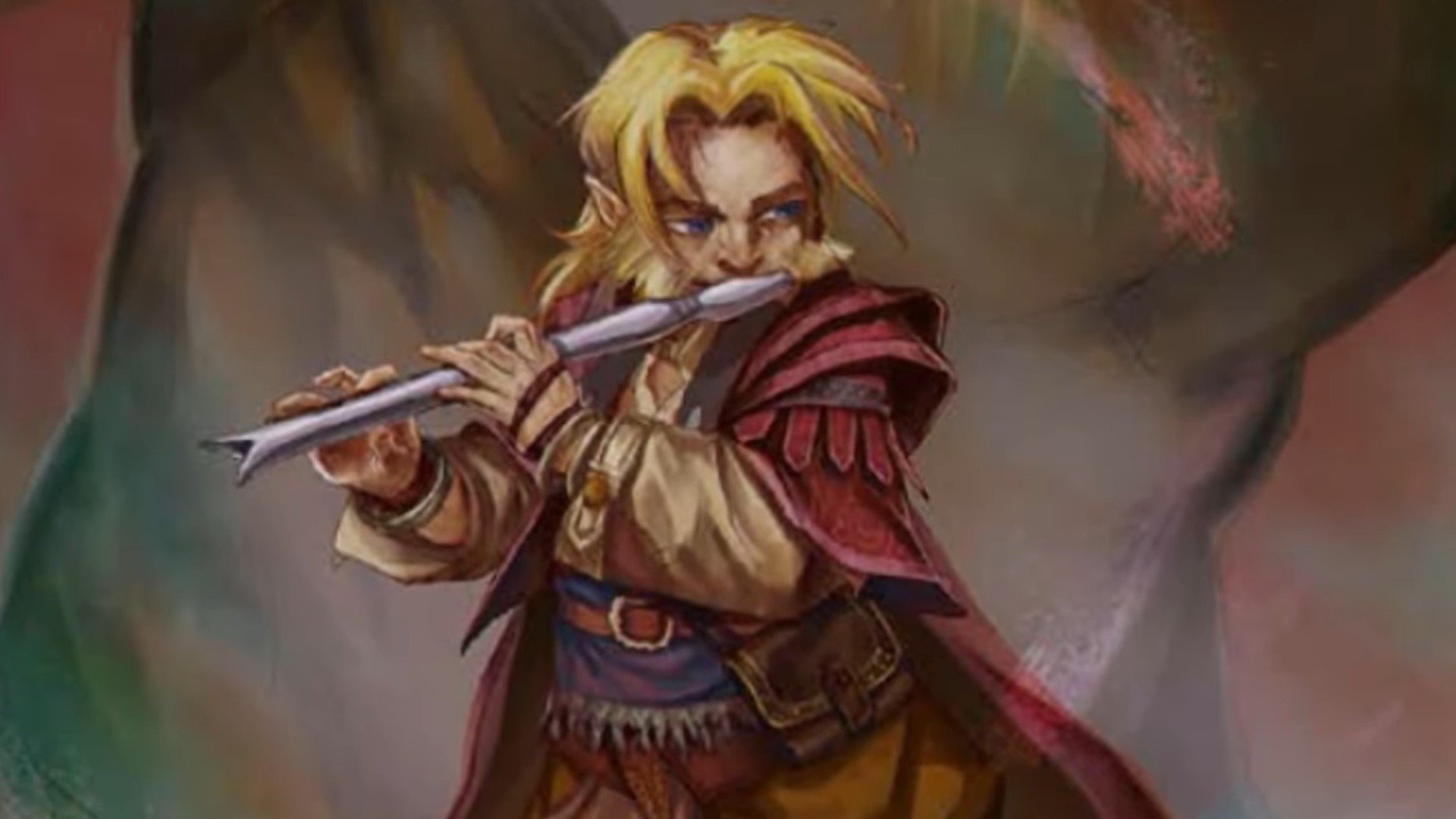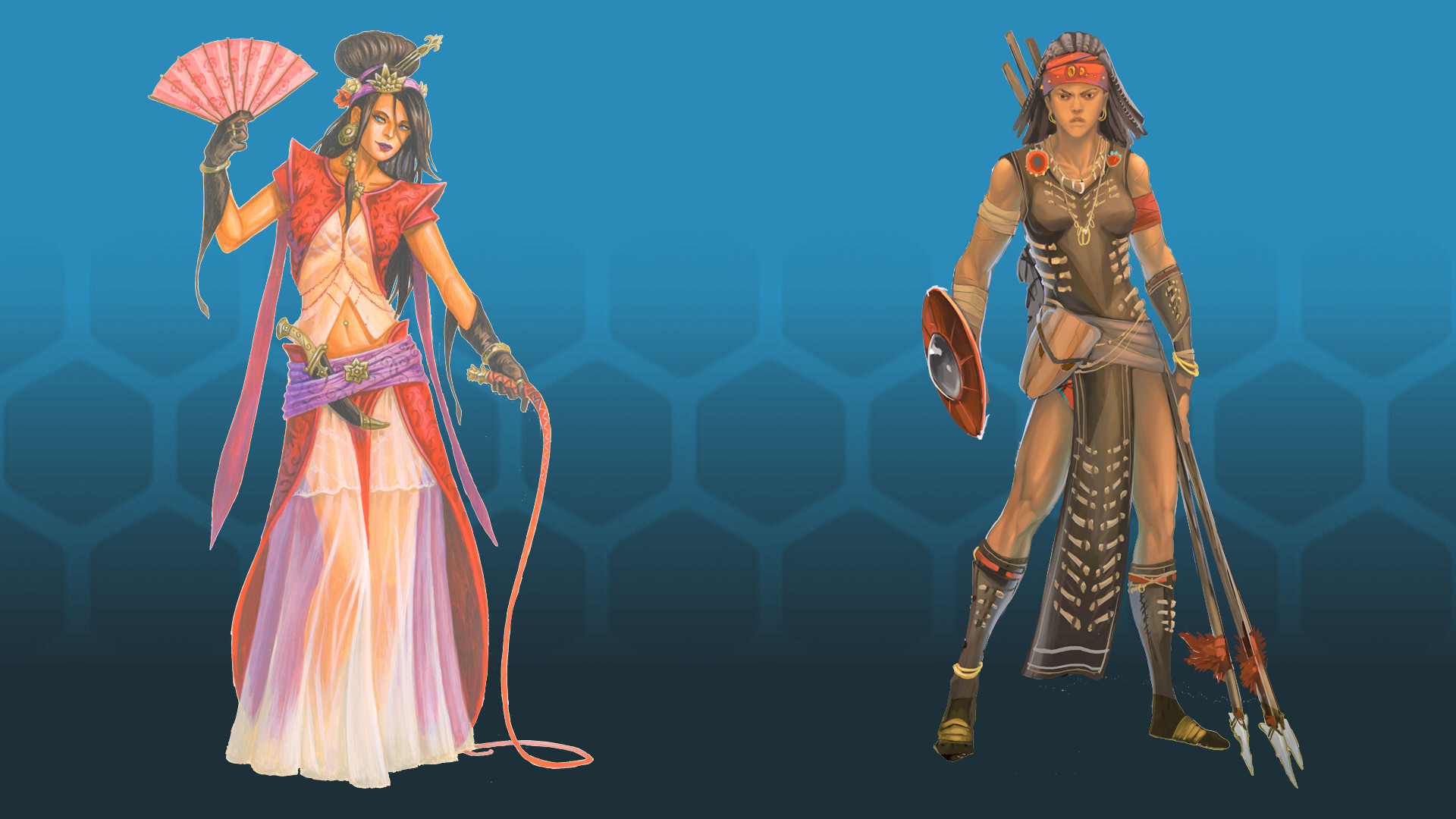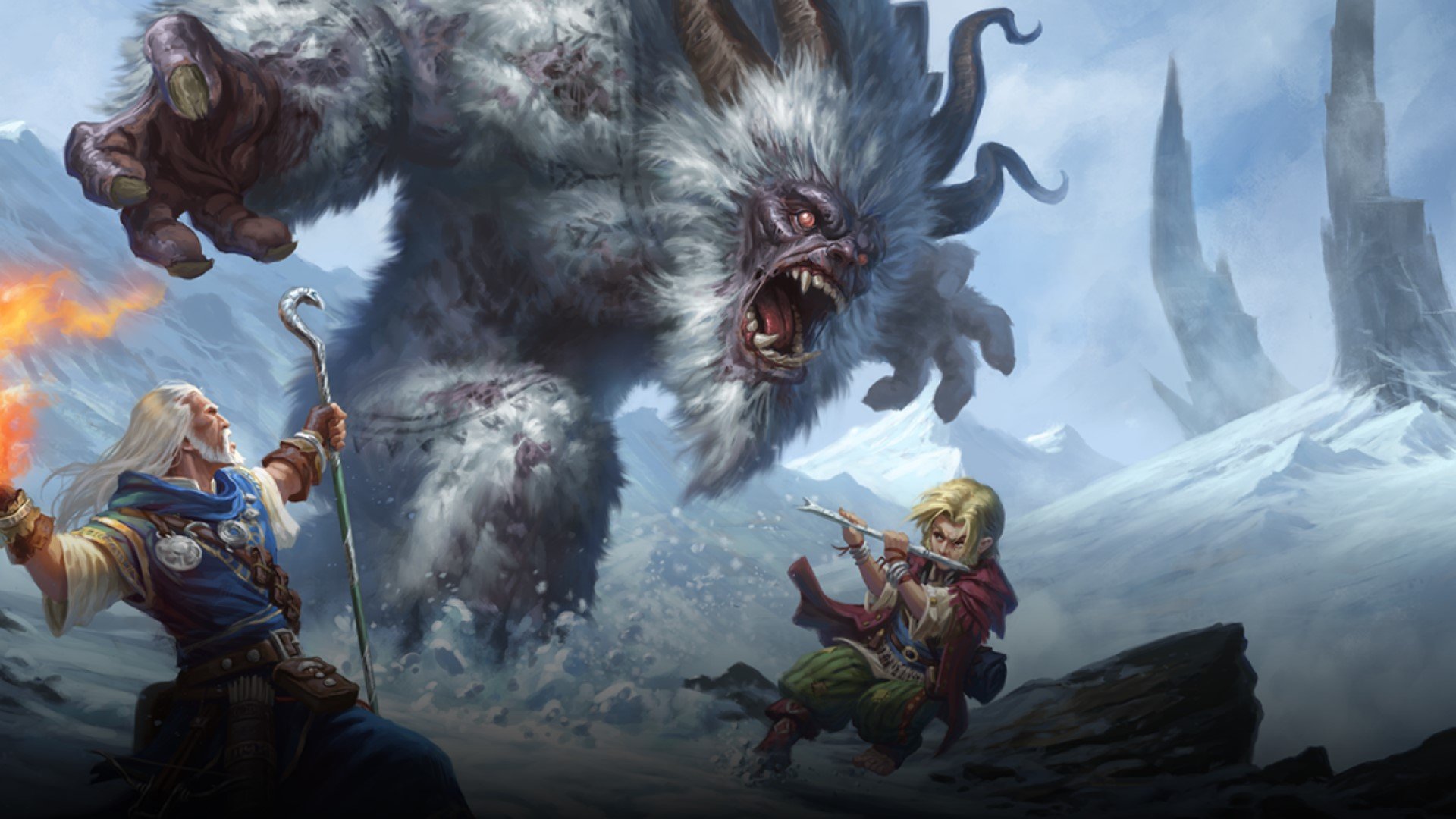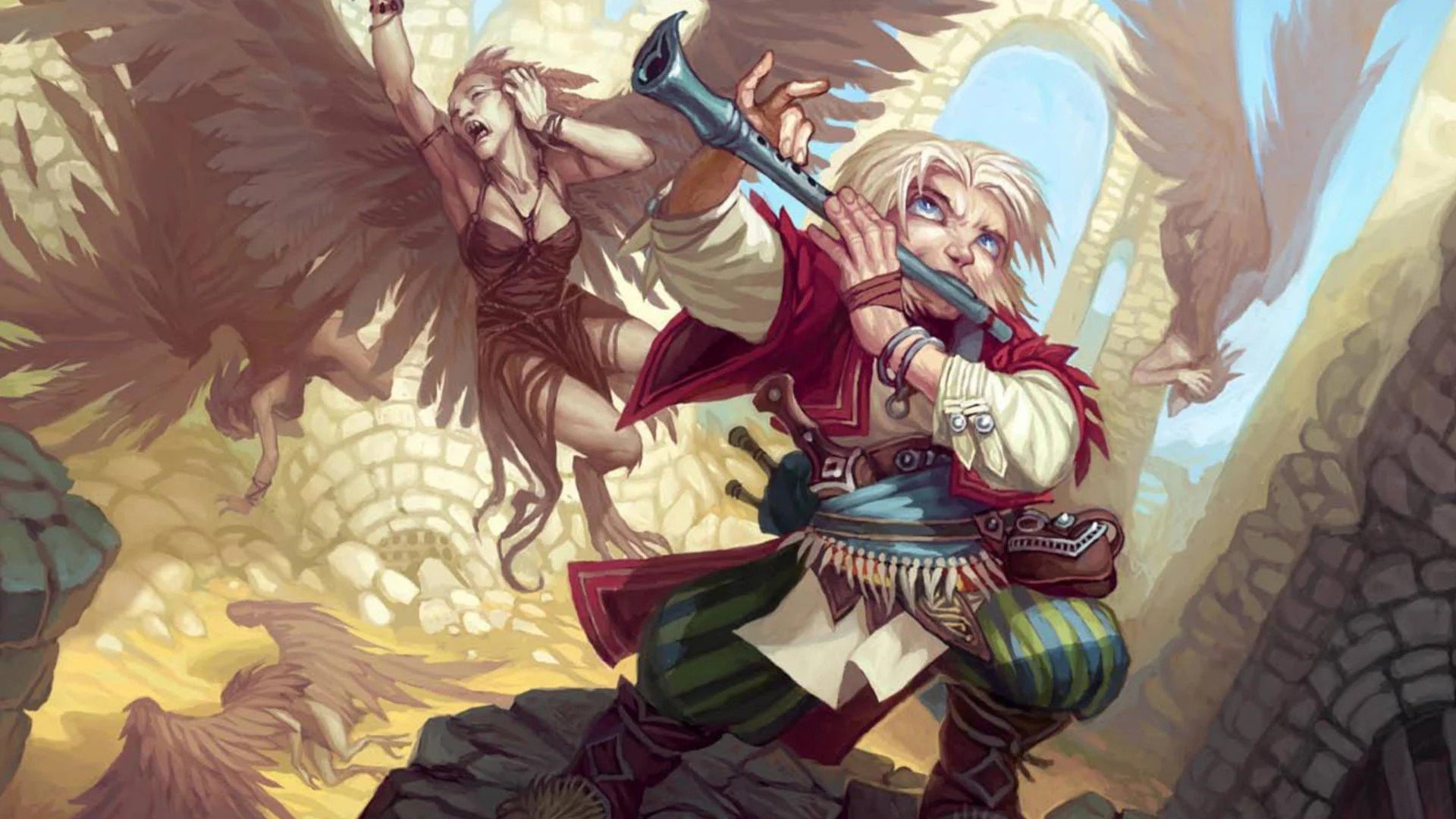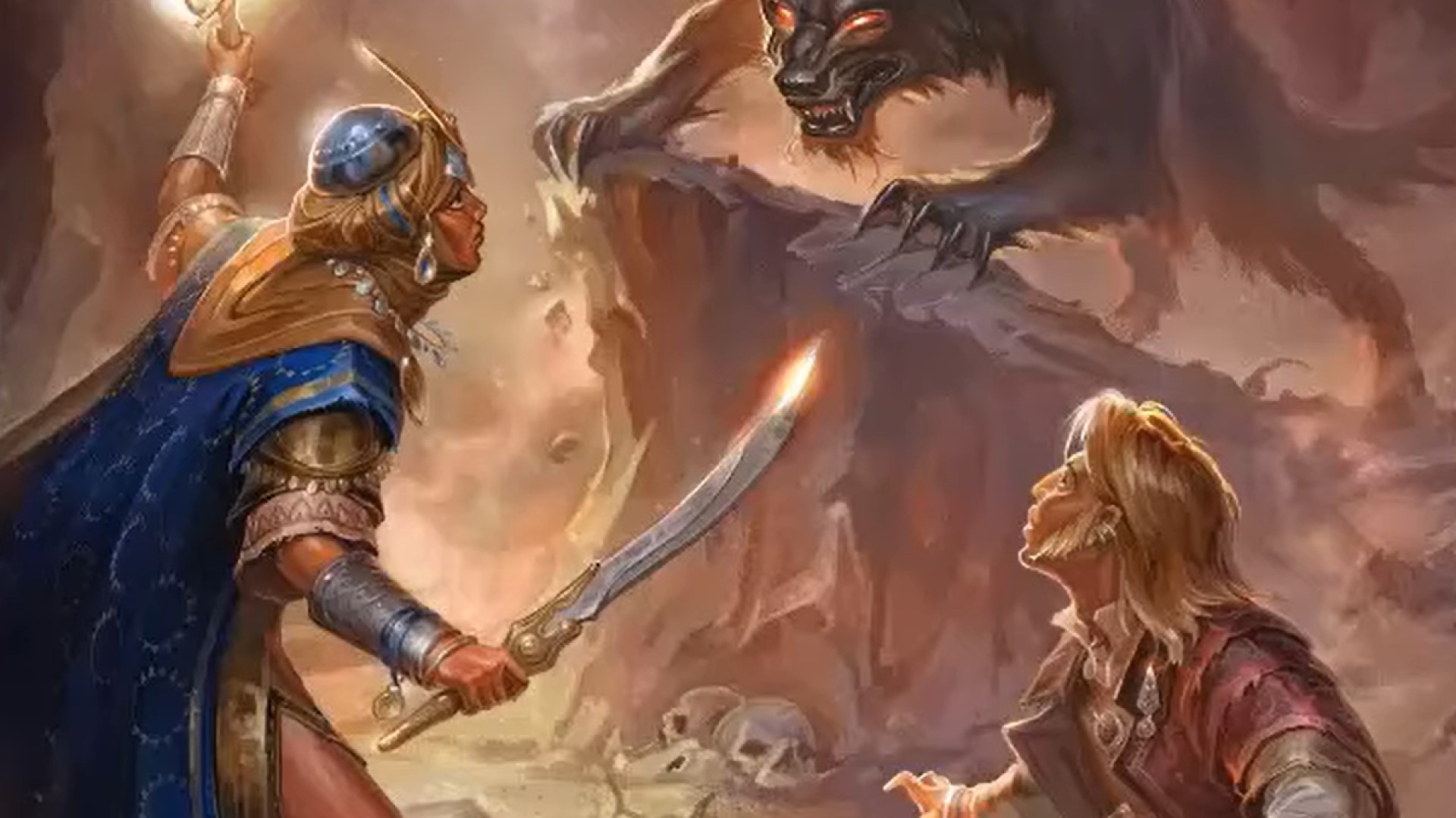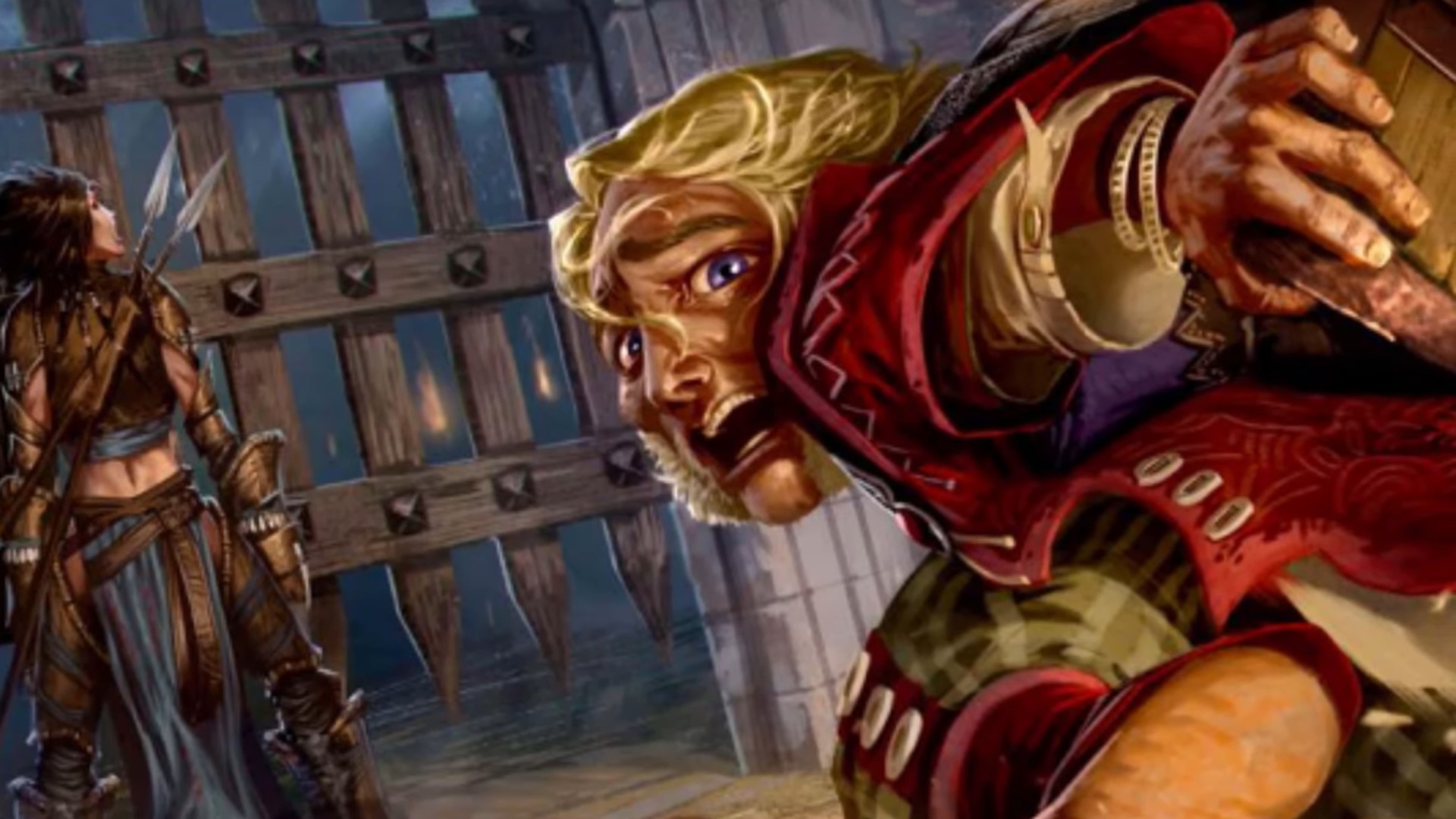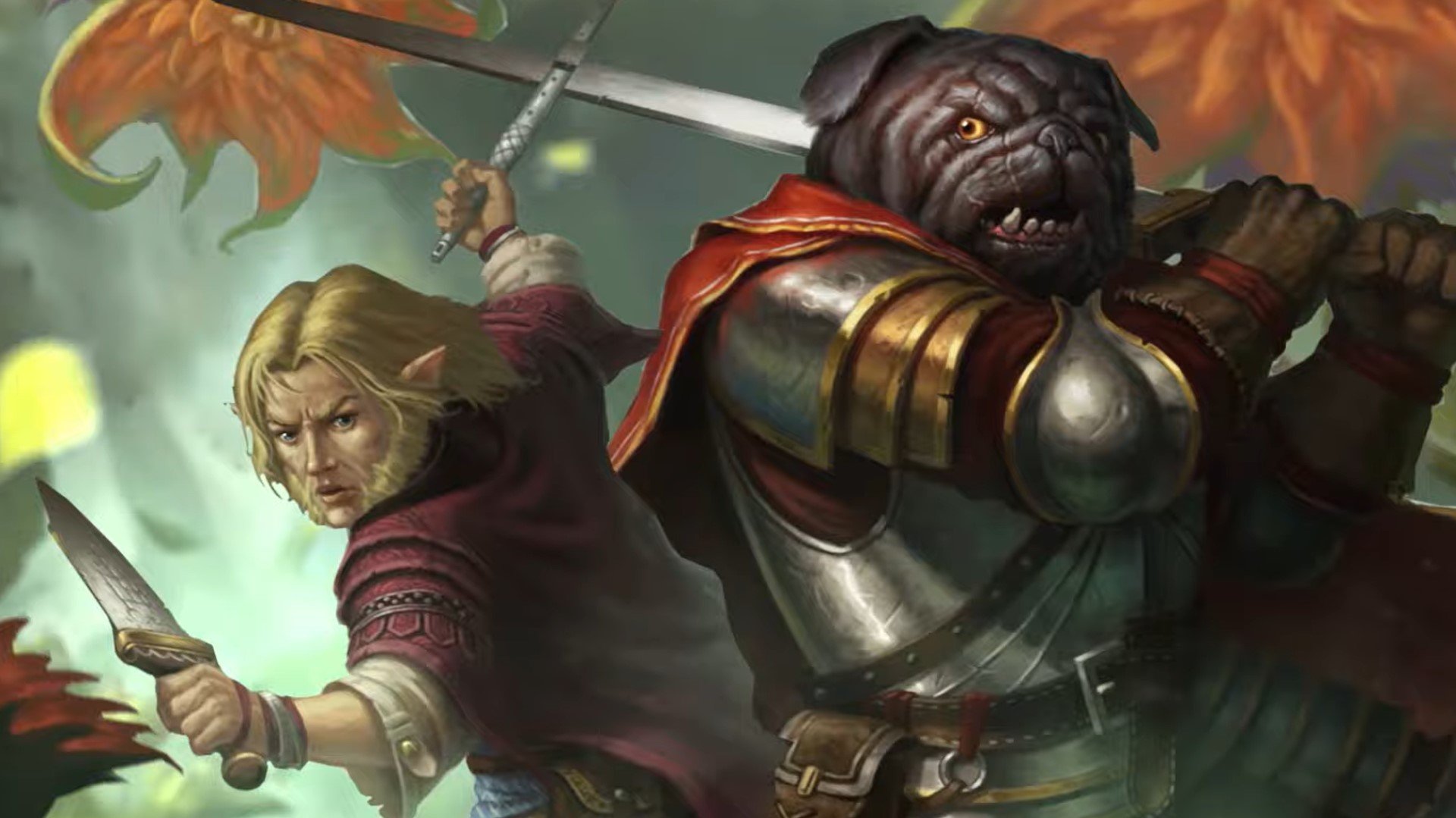A Pathfinder Bard values creativity and charisma above all else, using these skills to create great works of art as well as powerful magical effects. A Pathfinder player, on the other hand, has different priorities. Perhaps they want to master support, offering the perfect combat buffs at the right time. Or maybe they want an expansive list of skills that make checks a breeze. Whatever you want your Bard to be, make sure they’ve got an instrument handy so they can succeed in style.
This guide takes you through all the basics of the Pathfinder 2e Bard. We’ll take a look at the core stats and features that make up the most charismatic of Pathfinder classes. After that, be sure to pick one of the suitable Pathfinder races, fill in your Pathfinder character sheet, and have a great time playing.
Here’s your guide to the Pathfinder Bard:
Pathfinder Bard stats and proficiencies
The Bard class gives you an automatic boost to its primary ability score, Charisma. You start with a hit point maximum of eight plugs your Constitution modifier, and that max increases by this number each time you level up.
Here are the starting proficiencies for a Pathfinder Bard:
| Type | Name | Rank |
| Skill | Perception | Expert |
| Skill | Occultism | Trained |
| Skill | Performance | Trained |
| Saving throw | Fortitude | Trained |
| Saving throw | Reflex | Trained |
| Saving throw | Will | Expert |
| Attacks | Simple weapons | Trained |
| Attacks | Longsword | Trained |
| Attacks | Rapier | Trained |
| Attacks | Sap | Trained |
| Attacks | Shortbow | Trained |
| Attacks | Shortsword | Trained |
| Attacks | Whip | Trained |
| Attacks | Unarmed attacks | Trained |
| Defences | Light armour | Trained |
| Defences | Unarmoured defence | Trained |
| Spells | Occult spell attacks | Trained |
| Spells | Occult spell DCs | Trained |
As a Bard, you’re also trained in a number of extra skills equal to four plus your Intelligence modifier. You can choose what these extra proficiencies are.
Pathfinder Bard class features
There are plenty of class-specific features your Bard will gain access to as they grow. Here’s an overview of each:
| Level | Class features |
| 1 | Occult Spellcasting, Spell Repertoire, Composition Spells, Muse |
| 2 | Bard feat |
| 3 | Lightning Reflexes, Signature Spells |
| 4 | Bard feat |
| 5 | – |
| 6 | Bard feat |
| 7 | Expert Spellcaster |
| 8 | Bard feat |
| 9 | Great Fortitude, Resolve |
| 10 | Bard feat |
| 11 | Bard Weapon Expertise, Vigilant Senses |
| 12 | Bard feat |
| 13 | Light Armour Expertise, Weapon Specialisation |
| 14 | Bard feat |
| 15 | Master Spellcaster |
| 16 | Bard feat |
| 17 | Greater Resolve |
| 18 | Bard feat |
| 19 | Legendary Spellcaster, Magnum Opus |
| 20 | Bard feat |
Occult Spellcasting
Level: One
Plenty of Pathfinder classes can use magic, and occult spellcasting is the Bard’s preferred method. This feature means you can use an action to cast a spell, as long as you’ve got the right components.
Bards can often play their chosen instrument to replace certain spell components. If you want to skip the somatic components, you’ll need to create music using at least one hand, while verbal components can more generally be replaced by creating music. This means singing can’t replace your somatic components, but it might slide for verbal ones.
Spell Repertoire
Level: One
The spells you’re able to cast as a Bard are known as your spell repertoire. Your starting repertoire includes two first-level occult spells and five occult cantrips, but this list will expand as you level up.
It’s important to note your spell repertoire list and your actual spell slots are different things. Any feats or abilities that add to your spell repertoire don’t automatically give you extra spell slots. You might also find it handy to swap spells in your repertoire, which you can do any time you gain a level and learn new spells, or when you retrain during downtime. The new spell must be of the same level as the one it’s swapped for.
Composition Spells
Level: One
Compositions are unique spells that require an element of performance (and the performance skill) to cast. They’re also a type of focus spell, so they cost a focus point to cast.
Your Bard starts out with one focus point to spend. This refreshes during daily preparations or when you spend ten minutes on the refocus activity, typically engaging in some Bardic hobby. Like all focus spells, compositions don’t use spell slots, and they’re automatically heightened to half your level (rounded up).
At level one, your Bard also learns one composition spell immediately: Counter Performance. When you or an ally within 60 feet rolls a save against a sound or visual effect, you can roll a relevant performance check to protect against it.
Composition cantrips
Composition cantrips don’t cost spell slots or focus points, and they’re separate from the general cantrips your Bard knows. You’ll automatically learn the Inspire Courage cantrip, but many other composition cantrips are learned through feats. Inspire Courage grants you and allies in the area a plus one status bonus to attack rolls, damage rolls, and saves against fear effects for a single round.
Muse
Level: One
Every Bard has a muse that inspires them to create artistic masterpieces. You must choose a muse at level one. The 2e Core Rulebook lists the following options for potential muses:
Enigma
This muse is something truly unknown, whether that be an idea, story, deity, or creature. Your Bard has an insatiable curiosity, and they’ll be inspired to uncover this mystery. Mechanically, the Enigma gives you the Bardic Lore feat and adds True Strike to your spell repertoire.
Maestro
Your deity is a creature, deity, or idea that pushes you to become a true master of art or music. This grants you the Lingering Composition feat and the Soothe spell as part of your repertoire.
Polymath
Some people are lucky enough to be talented in many areas, and they want to try everything. Bards with plenty of special skills are inspired by a Polymath creature, idea, or deity. A Polymath Bard has access to the Versatile Performance feat and the Unseen Servant spell.
Lightning Reflexes
Level: Two
Your Rexflex saving throws reach expert proficiency rank.
Signature Spells
Level: Two
You can choose one spell from each spell level you know to become a signature spell. These spells can be heightened or cast at lower levels without you needing to learn different versions of the spell first.
Additionally, you can swap signature spells with another, providing your new choice is learned at the same level as the old signature spell. You can also learn a different spell of the same level without swapping if you spend time retraining.
Expert Spellcaster
Level: Seven
Expert spellcaster increases your proficiency for occult spell attack rolls and spell DCs to expert rank.
Great Fortitude
Level: Nine
Your proficiency rank for Fortitude saving throws reaches expert level.
Resolve
Level: Nine
When you roll a successful Will saving throw, it’s automatically a critical success instead.
Bard Weapon Expertise
Level: 11
All your starting weapon proficiencies – simple weapons, unarmed attacks, longsword, rapier, sap, shortbow, shortsword, and whip – increase to expert level.
Vigilant Senses
Level: 11
Vigilant senses raises your Perception proficiency rank to master.
Light Armour Expertise
Level: 13
Your proficiency in light armour and unarmoured defence reach expert level.
Weapon Specialisation
Level: 13
Thanks to weapon specialisation, you now deal two extra damage with any weapon or unarmed attacks for which you have expert proficiency. This becomes three damage at master level, and then four at legendary level.
Master Spellcaster
Level: 15
This raises your proficiency rank for occult attack spell rolls and spell DCs to master rank.
Greater Resolve
Level: 17
Your Will saves now reach legendary level, and all successful Will saves are automatically critical successes. If you roll a critical failure on a Will saving throw, it becomes a normal failure instead. You also take half damage instead of full damage if a failed Will save has a damaging effect.
Legendary Spellcaster
Level: 19
Your proficiency for occult spell attack rolls and spell DCs reaches legendary rank.
Magnum Opus
Level: 19
Your Bard is finally powerful enough to create a magical masterpiece. This feature allows you to add two level-ten occult spells to your repertoire. You’ll only get one tenth-level spell slot, though, and you don’t gain any more as you level up. Plus, you can’t use this slot for anything that gives you more slots or lets you cast without extending slots.
Pathfinder Bard spells
Here are the spell slots available to a Bard as they level up:
| Bard level | Cantrips | 1st-level spells | 2nd-level spells | 3rd-level spells | 4th-level spells | 5th-level spells |
| 1 | 5 | 2 | – | – | – | – |
| 2 | 5 | 3 | – | – | – | – |
| 3 | 5 | 3 | 2 | – | – | – |
| 4 | 5 | 3 | 3 | – | – | – |
| 5 | 5 | 3 | 3 | 2 | – | – |
| 6 | 5 | 3 | 3 | 3 | – | – |
| 7 | 5 | 3 | 3 | 3 | 2 | – |
| 8 | 5 | 3 | 3 | 3 | 3 | – |
| 9 | 5 | 3 | 3 | 3 | 3 | 2 |
| 10 | 5 | 3 | 3 | 3 | 3 | 3 |
| 11 | 5 | 3 | 3 | 3 | 3 | 3 |
| 12 | 5 | 3 | 3 | 3 | 3 | 3 |
| 13 | 5 | 3 | 3 | 3 | 3 | 3 |
| 14 | 5 | 3 | 3 | 3 | 3 | 3 |
| 15 | 5 | 3 | 3 | 3 | 3 | 3 |
| 16 | 5 | 3 | 3 | 3 | 3 | 3 |
| 17 | 5 | 3 | 3 | 3 | 3 | 3 |
| 18 | 5 | 3 | 3 | 3 | 3 | 3 |
| 19 | 5 | 3 | 3 | 3 | 3 | 3 |
| 20 | 5 | 3 | 3 | 3 | 3 | 3 |
| Bard level | 6th-level spells | 7th-level spells | 8th-level spells | 9th-level spells | 10th-level spells |
| 1 | – | – | – | – | – |
| 2 | – | – | – | – | – |
| 3 | – | – | – | – | – |
| 4 | – | – | – | – | – |
| 5 | – | – | – | – | – |
| 6 | – | – | – | – | – |
| 7 | – | – | – | – | – |
| 8 | – | – | – | – | – |
| 9 | – | – | – | – | – |
| 10 | – | – | – | – | – |
| 11 | 2 | – | – | – | – |
| 12 | 3 | – | – | – | – |
| 13 | 3 | 2 | – | – | – |
| 14 | 3 | 3 | – | – | – |
| 15 | 3 | 3 | 2 | – | – |
| 16 | 3 | 3 | 3 | – | – |
| 17 | 3 | 3 | 3 | 2 | – |
| 18 | 3 | 3 | 3 | 3 | – |
| 19 | 3 | 3 | 3 | 3 | 1* |
| 20 | 3 | 3 | 3 | 3 | 1* |
*See Magnum Opus class feature.
Pathfinder Bard feats
Here’s a list of the Bard feats from the Pathfinder 2e Core Rulebook:
| Character level | Feats available |
| 1 | Bardic Lore, Lingering Composition, Reach Spell, Versatile Performance |
| 2 | Cantrip Expansion, Esoteric Polymath, Inspire Competence, Loremaster’s Etude, Multifarious Muse |
| 4 | Inspire Defence, Melodious Spell, Triple Time, Versatile Signature |
| 6 | Dirge of Doom, Harmonise, Steady Spellcasting |
| 8 | Eclectic Skill, Inspire Heroics, Know-it-All |
| 10 | House of Imaginary Walls, Quickened Casting, Unusual Composition |
| 12 | Eclectic Polymath, Inspirational Focus |
| 14 | Allegro, Soothing Ballad, True Hypercognition |
| 16 | Effortless Concentration, Studious Capacity |
| 18 | Deep Lore, Eternal Composition, Impossible Polymath |
| 20 | Fatal Aria, Perfect Encore, Symphony of the Muse |
Source: Wargamer




